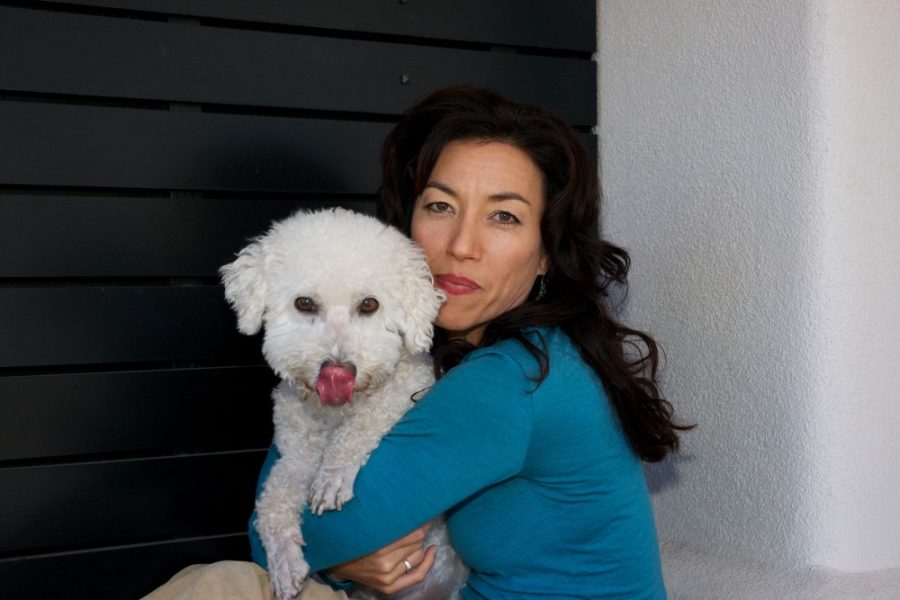Amazed by the extent of animals’ personalities, spunk and zest for life, Yuri Makino began a journey toward understanding animals’ interactions and their similarities to humans with her latest documentary centered on dogs, gorillas and dolphins.
Makino, the associate director of the Film & TV program and a professor at UA’s School of Theatre, Film and Television, will be showing clips from the film “Rough & Tumble: Taking Play Seriously” at Playground Bar and Lounge tonight from 6 to 7:30 p.m. The film focuses on the importance of play and the correlations we can draw between the play of animals and humans.
“Human play is usually thought of as a childhood pastime, but play imparts critical skills or experiences that are life-enhancing,” Makino said. “While play may seem trivial in our lives, it may define who we are and how we came to be.”
With the support of a grant given to Makino by the UA Confluencenter for Creative Inquiry, a department of the university dedicated to aiding in collaborative interdisciplinary research and innovations, the filmmaker was able to link up with a number of notable scientists who specialize in both animal and human dynamics.
Dieter Steklis and Netzin Steklis, two of the scientists who are primatologists and faculty at the Norton School of Family and Consumer Sciences, will join Makino for the showing and a question and answer session at Playground. The duo have been studying the family dynamics of mountain gorillas in Rwanda for 20 years, and much of their research on gorilla social and emotional interactions is included in the film.
Marc Bekoff, another specialist who plays a key role in “Rough & Tumble,” is an evolutionary biologist who studies dogs and wolves. Through his research, Bekoff has come to believe that animal play is the catalyst in the evolution of morality.
“In play between wolves, each has to play by certain rules. Wolves who don’t play fairly are excluded by other wolves and don’t thrive,” Makino said, describing Bekoff’s beliefs. “He calls this idea ‘wild justice’ and feels that it is through play that animals learn the difference between right and wrong.”
The pertinence of play carries over into human behavior as well, as Anthony Pellegrini, a professor of educational psychology at the University of Minnesota, attests to in the film.
Makino said that Pellegrini “encourages rough and tumble play – that is, unstructured play with minimal adult intervention so that kids learn social skills.
“He makes a distinction between play and games,” she added. “Games have an end goal, which is different from the play, which helps kids develop their creativity and imagination.”
Nature writer Brenda Peterson also plays a part in the film, taking viewers into her life of swimming with dolphins, as dolphins are known to be some of the most playful creatures.
Makino said that the importance of integrating play into adult life has become clear to her through her work. She said she’s incorporated play into her own life by “working in the garden, hiking and yoga,” as well as playing with her dog. “It should be unstructured, not working toward a specific goal,” she said. “It is about the pleasure of doing something in the moment.”
One especially quirky aspect of the documentary is the use of doggie cams. Makino said that cameras were strapped to a few dogs in the film so viewers could see exactly what it’s like to partake in some puppy roughhousing.
“Through the filming, it became clear to me that to watch animals in the act of playing is really nourishing and joyful,” Makino said. “It reminds me of the pleasures of just living.”









